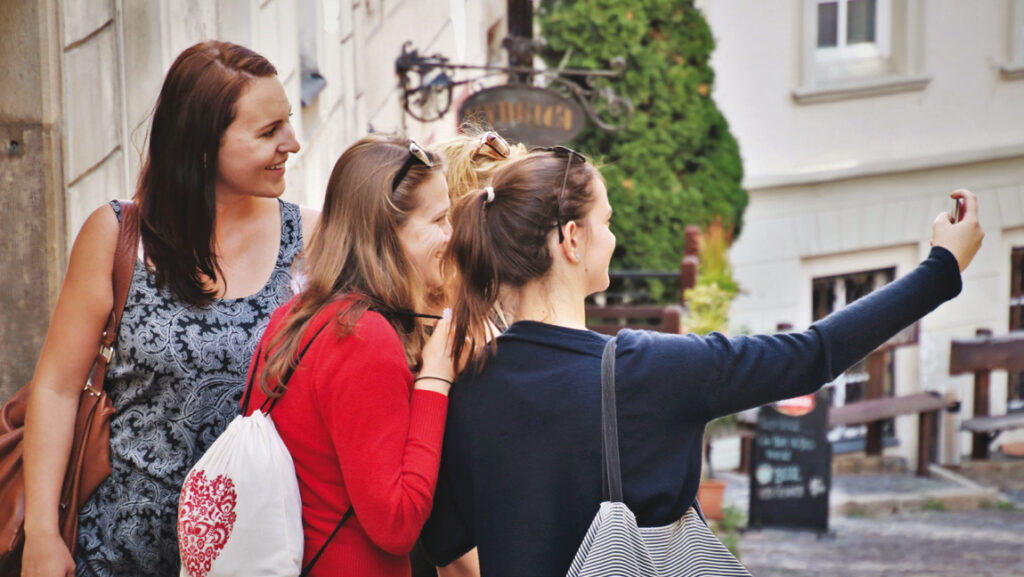There is no doubt that globalization has shrunk the world and has given exponential growth to cultural exchanges. The sharing that social media rapidly facilitates by fostering a perception of proximity can be as cynical as it is supportive. Indeed, social media is the realm of illusion and “information bulimia” on the Internet, and only the reasoned and rational use of these information networks can transform them into real possibilities. As J.D. Bolter reminds us, “Our media culture is extraordinarily rich and, in its plenitude, entirely acritical. It contains an infinite amount of junk, but also a lot of interesting stuff.”
In today’s digital culture, a kind of reversal is taking place with respect to a not-too-distant past: whereas a few decades ago society’s behavior was guided by an attitude of discretion and restraint, and the fear of being watched was a kind of nightmare, today we do everything to be observed, because we fear being abandoned, ignored, denied, excluded. It is enough to think of the logic and dynamics that predominate in the construction of influencer profiles.
Pope Francis reminds us of this very clearly in his encyclical Fratelli Tutti, where he states: “While closed and intolerant attitudes towards others are on the rise, distances are otherwise shrinking or disappearing to the point that the right to privacy scarcely exists. Everything has become a kind of spectacle to be examined and inspected, and people’s lives are now under constant surveillance. Digital communication wants to bring everything out into the open. People’s lives are combed over, laid bare and bandied about, often anonymously. Respect for others disintegrates, and even as we dismiss, ignore or keep others distant, we can shamelessly peer into every detail of their lives.”
It is clear, then, that being connected does not mean being community.
We are therefore all called to reclaim personal relationality in presence, because “direct, face-to-face conversation,” sociologist Sherry Turkle says, “leads to higher self-esteem and improves one’s ability to interact with others. Once again, conversation is the remedy.” It is sufficient to recall what semiologist Isabella Pezzini wrote in 2020: “The locus of the body speaks as much as the intellect: space is the locus of this discourse and structures its grammar, while distancing impacts communication and mutual understanding. The locus of the communication of tacit, intersubjective and uncoded knowledge is proximity. Being together and in close proximity can produce clan and solidary effects, and can also generate innovation.”
Here, then, is how communication has changed: it has become cold by depriving itself of the manifestation of the nonverbal elements that also guide the perception of the meaning proper to verbal communication.
In fact, the social dimension includes an exchange of bodily elements such as smell and physical contact that virtual communication cannot offer. This has been evident in what is now referred to as online learning. In this regard, we must remember that learning is not only a cognitive matter, but also a matter of intellectual and emotional contact and “contagion” between/among the interlocutors. This dimension of the exchange of moods (from which humor and cheerfulness also derive) gives rise to social bodies like the class, the team, etc., as well as to movements (political parties, the Nation). Consequently, Pope Francis says, it is necessary to find the right language because “contact is the true language of communication–the same affective language that transmitted healing to a leper. How many healings we could accomplish and transmit by learning the language of contact!”
We are as obsessed with social media today as we were with TV yesterday. Social networking gratifies us because we think we can interact with the whole world (ideally at least), imagining that we have access to the most important personalities and the most exclusive circles. However, if we are not anesthetized by gratification, we also discover the strong illusory charge of the world of social media.
In Fratelli Tutti, the Pope invites each and every one of us “to learn how to unmask the various ways that the truth is manipulated, distorted and concealed in public and private discourse. What we call ‘truth,’” he says, “is not only the reporting of facts and events, such as we find in the daily papers. It is primarily the search for the solid foundations sustaining our decisions and our laws. This calls for acknowledging that the human mind is capable of transcending immediate concerns and grasping certain truths that are unchanging, as true now as in the past. As it peers into human nature, reason discovers universal values derived from that same nature.”
Thus, the strength and necessity of an honest mind free from subservience to dictators or overlords is reaffirmed–a mind that can distinguish in the plenitude of media culture “things that are garbage from things that are interesting,” as Jay David Bolter says.
Which means that being connected does not necessarily mean being someone who performs better. Indeed, far from it!
Msgr. Dario Edoardo Viganò
Vice Chancellor of the Pontifical Academy of the Sciences and Social Sciences
* For further study: The Illusion of an Interconnected World: Social Relations and New Technologies, by Msgr. Dario Edoardo Viganò, Dehonian Editions, Bologna, 2022.

